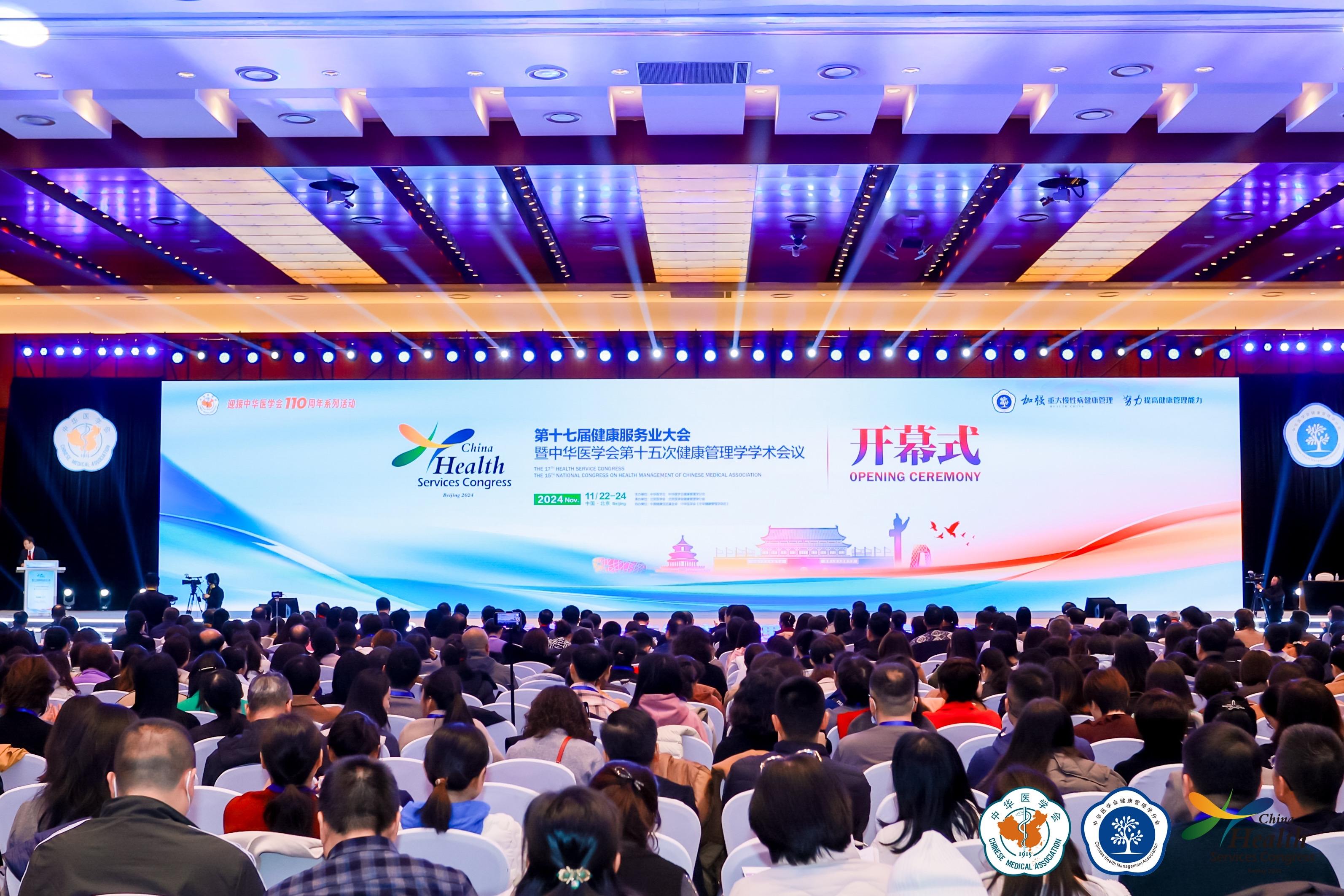Empowering Medical "Treatment" with the "Intelligence" of Technology | The First Oriental Congress of Academic Conference on Health Management was Successfully Held
In order to strengthen the leading role of academia and consolidate the core advantages of high-quality development of Shanghai's health management discipline, the "First Oriental Congress of Academic Conference on Health Management" hosted by the Shanghai Medical Association and the Health Management Branch of the Shanghai Medical Association was successfully held in Shanghai from December 6-8, 2024. The "Oriental" brand series of academic conferences is a high-level and high-quality academic conference carefully crafted by the Shanghai Medical Association, adhering to the concept of "high standards, high-quality, and strong brand". It has become the most important academic exchange platform for the Shanghai Medical Association to promote the prosperity and development of medical science and technology.
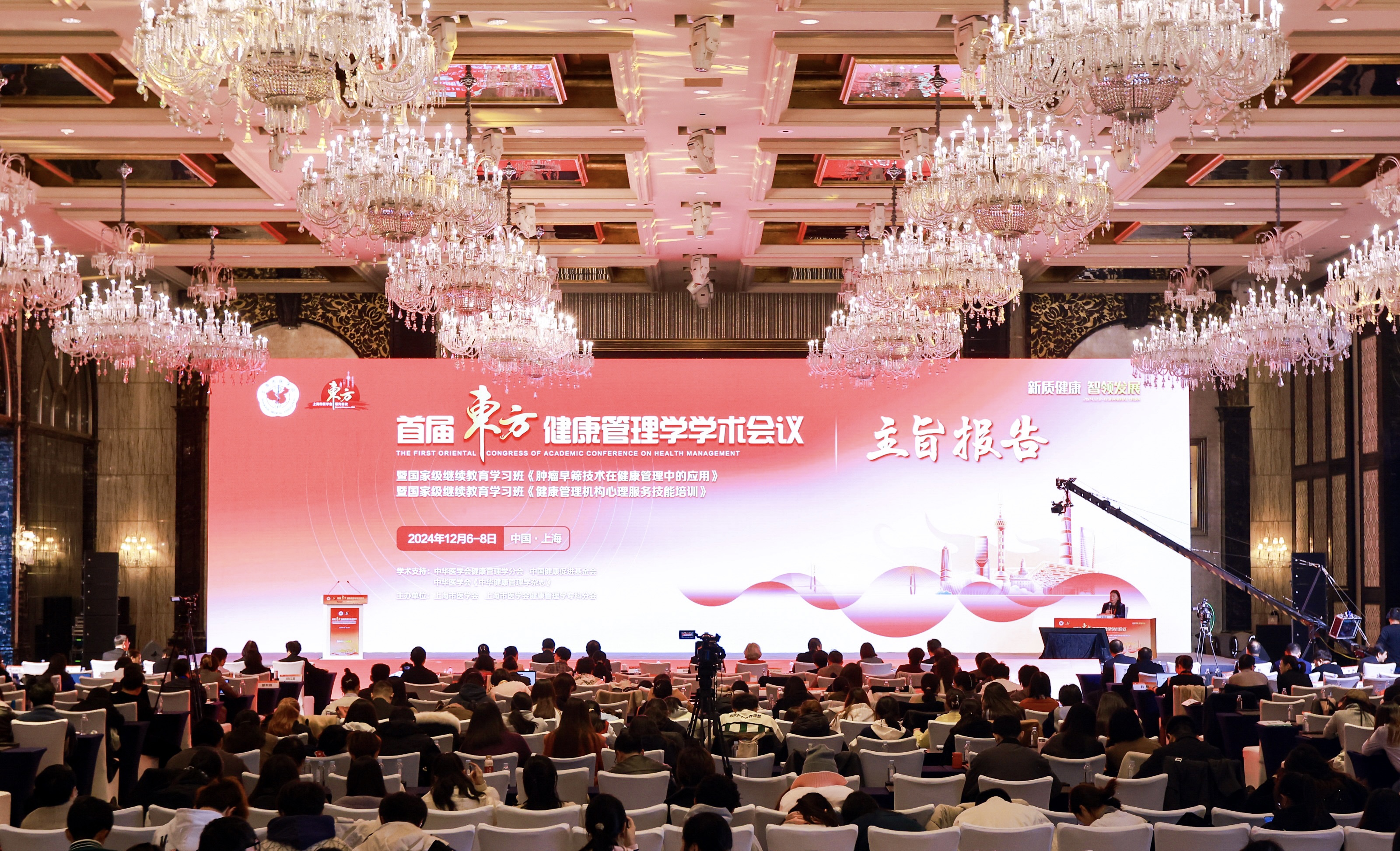
On the afternoon of December 6th, Professor Xu Qun, Director of the Health Management Center at Renji Hospital affiliated with Shanghai Jiao Tong University School of Medicine, presented a special report on "Early Screening and Management of Liver Cancer" at the national continuing education course "Application of Tumor Early Screening Technology in Health Management", which was highly recognized by the attending experts.
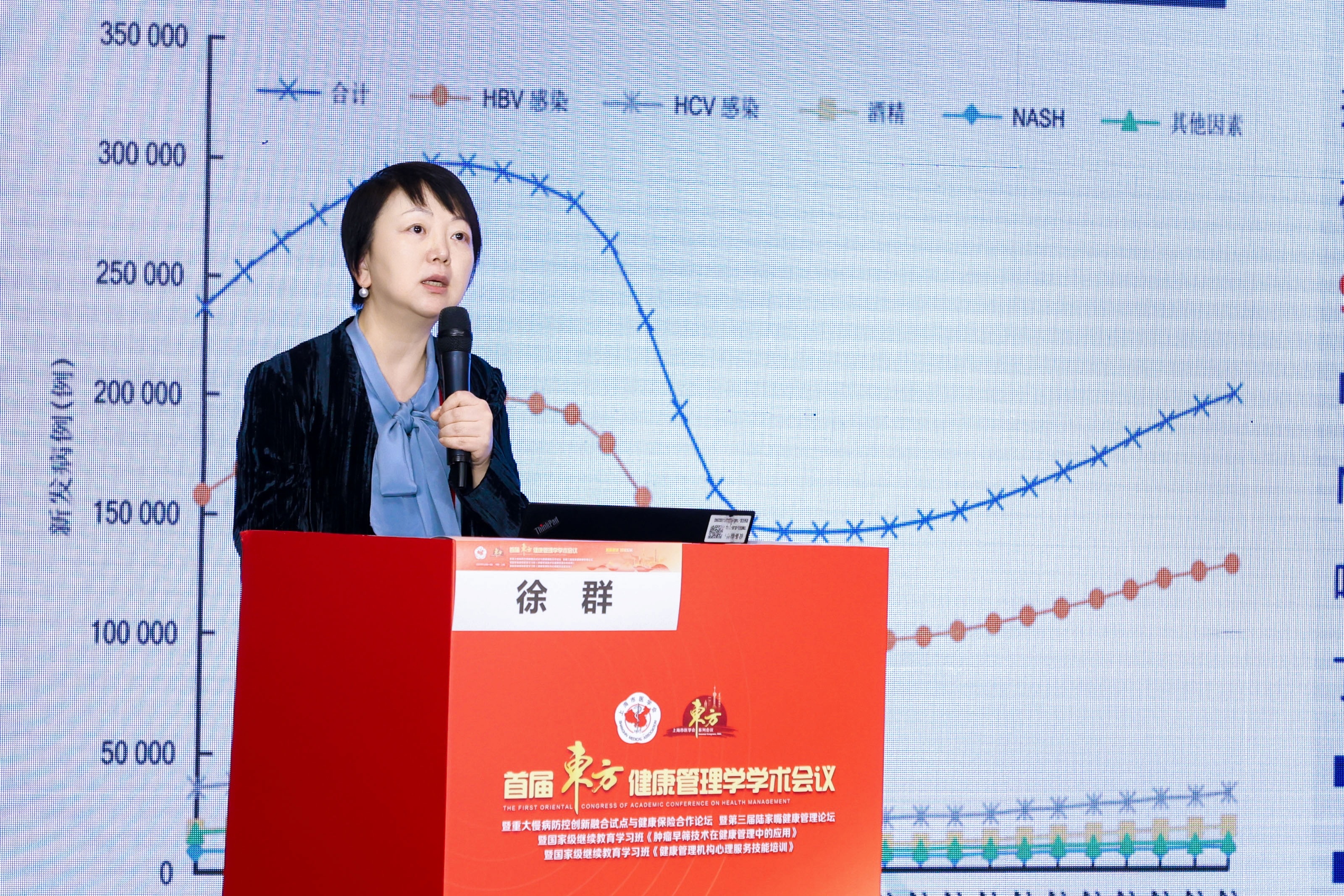
Director Xu first introduced the current situation of liver cancer incidence and diagnosis and treatment in China. At present, 70% -80% of liver cancer patients are already in the middle to late stage at the time of initial diagnosis, and 60% -70% of patients have metastasis and recurrence after surgery. The 5-year survival rate of early liver cancer patients receiving curative treatment can reach 72.4%. Therefore, early diagnosis is a key factor affecting the long-term survival of patients. At present, there is a challenge in clinical practice of lacking effective early diagnosis and warning methods, which leads to the late detection of most Chinese liver cancer patients and often misses the best opportunity for diagnosis and treatment.
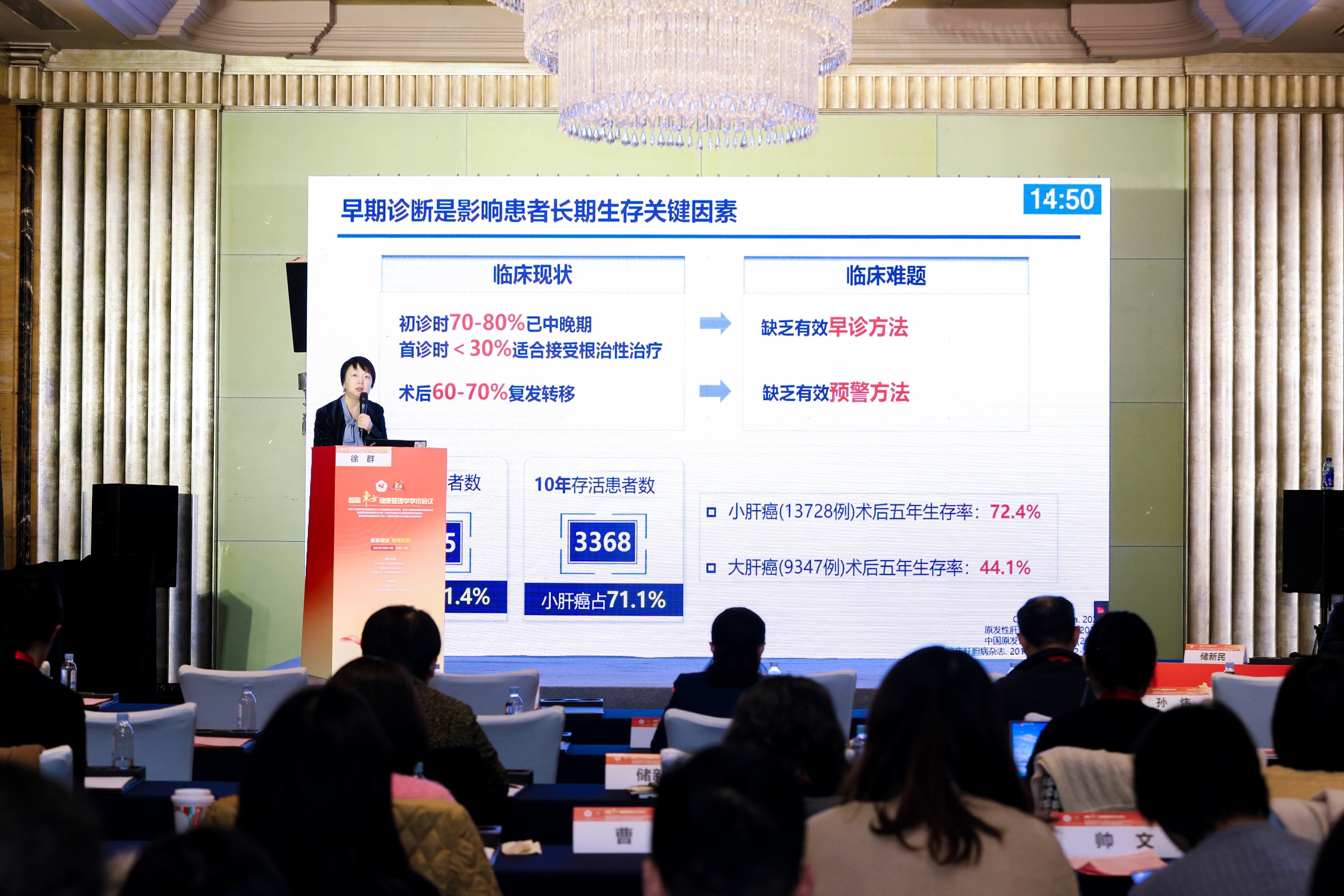
She further pointed out that the intelligent health management informatization construction proposed in policy documents such as the "Healthy China 2030" Plan Outline and the "Opinions on Promoting the Construction of a Healthy China" aims to provide more accurate and personalized health services to the public through strong support for health technology innovation. At present, early screening methods are becoming increasingly diverse, with multiple technological paths complementing each other's advantages. In clinical practice, imaging, endoscopy, and other methods are mainly used for early screening of tumors. Among various new early screening detection methods, liquid biopsy is considered the most promising. The world's first liver cancer diagnostic kit miRNA7, as a new technology for peripheral blood liver cancer molecular detection, can effectively improve the efficiency of early diagnosis of liver cancer. After optimization and validation through thousands of large sample and multi center studies, the liver cancer diagnostic model based on seven plasma miRNAs has a detection rate of 86.1% for extremely early liver cancer, which is 30% higher than the traditional biomarker AFP; The sensitivity and specificity of miRNA7 for AFP negative liver cancer were 77.7% and 84.5%, respectively, which were significantly better than traditional biomarker detection (Evidence Level 1, Recommendation A). Therefore, miRNA7 can greatly reduce the missed diagnosis of early liver cancer patients due to AFP negativity in clinical practice, overall improve the detection rate of extremely early liver cancer, provide more accurate diagnosis for clinical doctors, and bring valuable treatment time to patients.
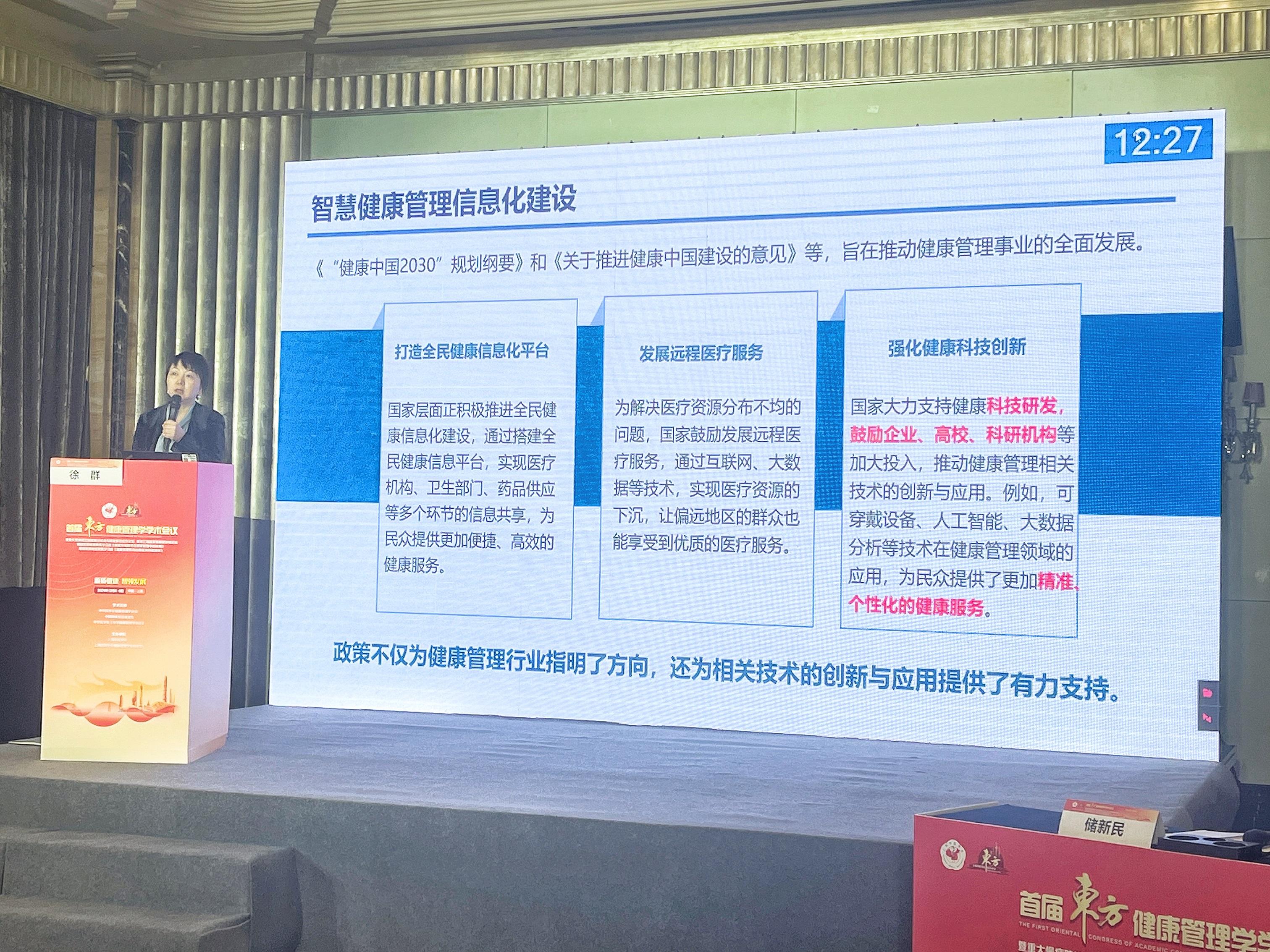

In addition, the "Guidelines for the Diagnosis and Treatment of Primary Liver Cancer (2024 Edition)" explicitly use miRNA7 as an early diagnostic biomarker for liver cancer, and the significance of early detection, diagnosis, and monitoring of primary liver cancer based on a combination of 7 miRNAs is mentioned in 12 places throughout the Guidelines. Based on the high-risk factors, imaging characteristics, and hematological molecular markers of liver cancer, clinical diagnosis of liver cancer can be carried out according to the steps of the liver cancer diagnosis roadmap.

Finally, Director Xu summarized that miRNA7 is the first Class III liver cancer molecular testing product approved by the National Medical Products Administration (NMPA) in China. It has been included in multiple authoritative guidelines and consensus, such as the "Diagnosis and Treatment Guidelines for Primary Liver Cancer (2024 Edition)", and has won the second prize of National Science and Technology Progress Award in 2020. It has gradually been applied in major health management centers across the country. In addition to being strongly recommended by the consensus guidelines, miRNA7 liver cancer molecular testing can detect small liver cancer very early and accurately, and has a high detection rate in AFP negative populations, significantly reducing the misdiagnosis rate caused by traditional biomarker testing, providing positive assistance for early warning and precise screening of high-risk populations for primary liver cancer in China.

We believe that with the application and promotion of miRNA7 in the field of health management, it will contribute to improving the early diagnosis rate and 5-year survival rate of liver cancer in China, effectively advancing the early detection of cancer in China, and steadily promoting the implementation of the Healthy China initiative.


